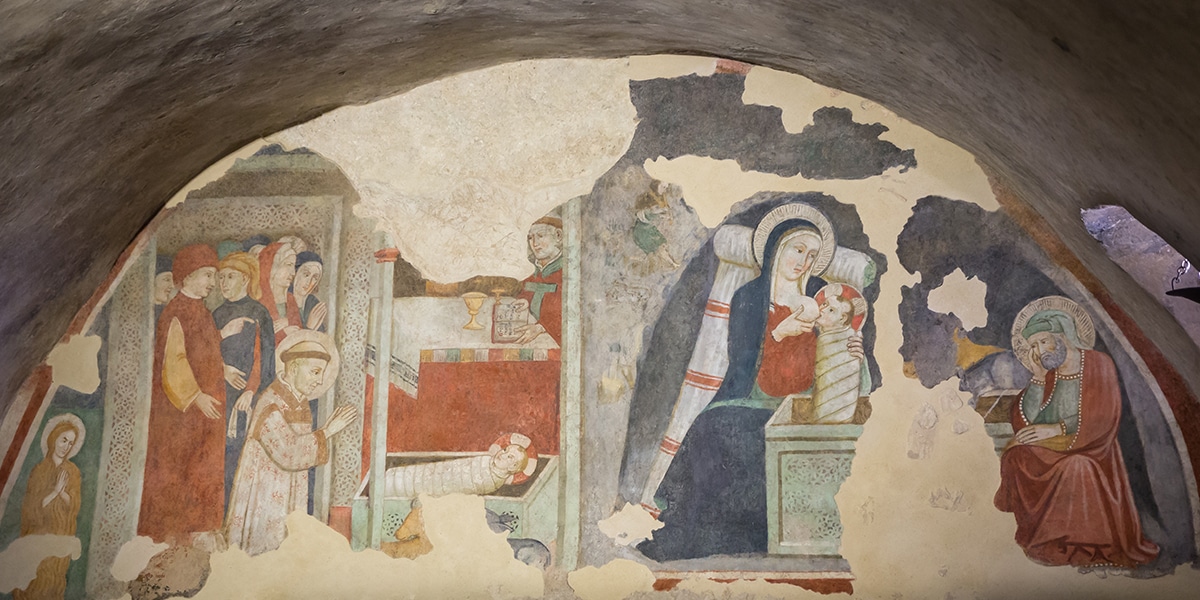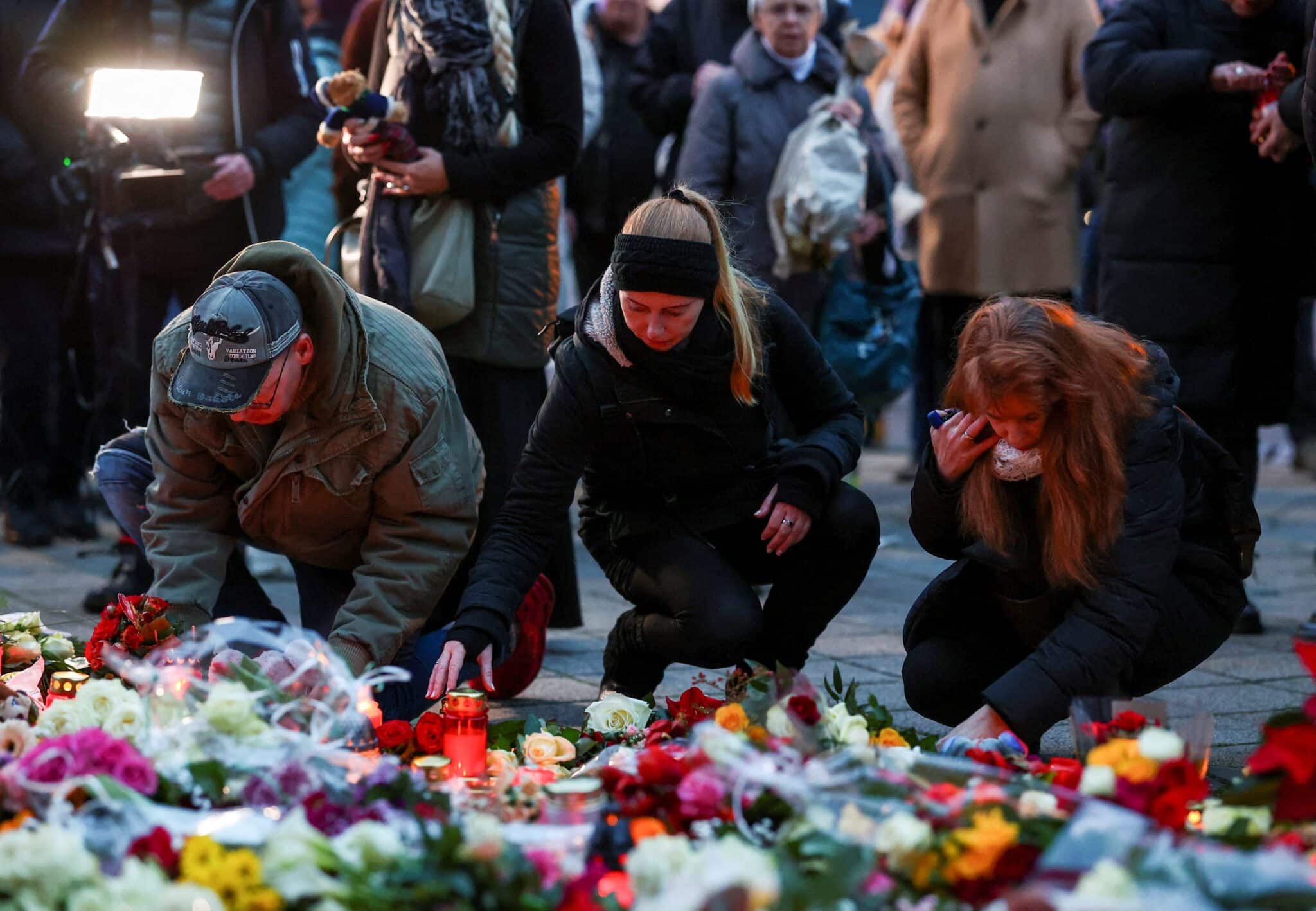NAIROBI, Kenya (CNS) — As Maryamu Joseph, a 16-year-old victim of Boko Haram violence, recovers from trauma after years of captivity, she finds it hard to forgive the men who abducted her.
Maryamu recalls that one day when she was 7, armed men raided her community and went on a killing spree before she was abducted with 21 others. She was caged in a militant camp deep in the Sambisa Forest, in northeastern Nigeria.
“They took 22 of us into a thick forest, and we trekked for 22 days before arriving at our destination. They put the Christians in cages, like animals,” Maryamu told the pontifical aid agency Aid to the Church in Need.
“The first thing they did was forcefully convert us to Islam. They changed my name to Aisha, a Muslim name, and warned us not to pray as Christians, or we would be killed.”
For nine years, she was in bondage in the camp, amid torture and abuse from her abductors, whom she described as heartless and ruthless.
“When I turned 10, they wanted to marry me to one of their bosses, but I refused. As punishment, they locked me in a cage for an entire year. They brought food once a day and pushed it under the door without ever opening the cage,” she said in the ACN interview, conducted in her Hausa language.
Boko Haram — which loosely translates into Western education is forbidden — has carried out a campaign of terror in northern Nigeria, attacking churches, villages and markets. It has carried out a series of abductions of children, with the most famous being the kidnap of more than 275 girls from a government school in Chibok in 2014.
In 2019, two of Maryamu’s siblings were captured and brought to the camp. She said the militants decapitated and dismembered her brother before her eyes.
“They treated my brother’s body just like a chicken before it’s cooked. I was devastated,” she told Aid to the Church in Need. “I said to myself, ‘Who’s next?’ A few days later, I started having nightmares, I started hallucinating.
“Words cannot do justice to what I’ve gone through,” said Maryamu. “For nine years we saw the shedding of the innocent blood of my fellow Christians, killed by people who do not value life. They murdered without remorse like it’s a normal thing to do.”
In July, Maryamu and 12 others escaped from the camp. She eventually found help at the trauma center in Maiduguri Diocese. The center was built with financial support from Aid to Church in Need to help people who have suffered violence at the hands of Boko Haram.
The center is scheduled to open officially in November, but it has already helped more than 20 people start to overcome trauma while offering counseling and vocational training to victims.
“The first thing they did was to pray for me and encourage me to come back to my faith. I am happy to return to Christianity,” said Maryamu.
She said she no longer hallucinates, and she hopes that, with time, she will overcome bitterness and embrace peace.
Asked about forgiving the militants for incarceration, Maryamu said she needs time.
“I don’t think I am able to forgive them. I need time to digest all that has happened to me, then maybe, just maybe, we can then talk about forgiveness. But today, no, I cannot forgive them,” said the teen, who feels that what she went through drew her far away from God.
She said her priority is to end the pain and anguish weighing down on her. Then she hopes to go to school, get an education and become a lawyer to defend the defenseless
She also has some short-term goals: “I want to learn how to make beautiful dresses, shoes and handbags.”
By Catholic News Service







News & Commentary
Nigerian teen held by Boko Haram: ‘I don’t think I am able to forgive’
NAIROBI, Kenya (CNS) — As Maryamu Joseph, a 16-year-old victim of Boko Haram violence, recovers from trauma after years of captivity, she finds it hard to forgive the men who abducted her.
Maryamu recalls that one day when she was 7, armed men raided her community and went on a killing spree before she was abducted with 21 others. She was caged in a militant camp deep in the Sambisa Forest, in northeastern Nigeria.
“They took 22 of us into a thick forest, and we trekked for 22 days before arriving at our destination. They put the Christians in cages, like animals,” Maryamu told the pontifical aid agency Aid to the Church in Need.
“The first thing they did was forcefully convert us to Islam. They changed my name to Aisha, a Muslim name, and warned us not to pray as Christians, or we would be killed.”
For nine years, she was in bondage in the camp, amid torture and abuse from her abductors, whom she described as heartless and ruthless.
“When I turned 10, they wanted to marry me to one of their bosses, but I refused. As punishment, they locked me in a cage for an entire year. They brought food once a day and pushed it under the door without ever opening the cage,” she said in the ACN interview, conducted in her Hausa language.
Boko Haram — which loosely translates into Western education is forbidden — has carried out a campaign of terror in northern Nigeria, attacking churches, villages and markets. It has carried out a series of abductions of children, with the most famous being the kidnap of more than 275 girls from a government school in Chibok in 2014.
In 2019, two of Maryamu’s siblings were captured and brought to the camp. She said the militants decapitated and dismembered her brother before her eyes.
“They treated my brother’s body just like a chicken before it’s cooked. I was devastated,” she told Aid to the Church in Need. “I said to myself, ‘Who’s next?’ A few days later, I started having nightmares, I started hallucinating.
“Words cannot do justice to what I’ve gone through,” said Maryamu. “For nine years we saw the shedding of the innocent blood of my fellow Christians, killed by people who do not value life. They murdered without remorse like it’s a normal thing to do.”
In July, Maryamu and 12 others escaped from the camp. She eventually found help at the trauma center in Maiduguri Diocese. The center was built with financial support from Aid to Church in Need to help people who have suffered violence at the hands of Boko Haram.
The center is scheduled to open officially in November, but it has already helped more than 20 people start to overcome trauma while offering counseling and vocational training to victims.
“The first thing they did was to pray for me and encourage me to come back to my faith. I am happy to return to Christianity,” said Maryamu.
She said she no longer hallucinates, and she hopes that, with time, she will overcome bitterness and embrace peace.
Asked about forgiving the militants for incarceration, Maryamu said she needs time.
“I don’t think I am able to forgive them. I need time to digest all that has happened to me, then maybe, just maybe, we can then talk about forgiveness. But today, no, I cannot forgive them,” said the teen, who feels that what she went through drew her far away from God.
She said her priority is to end the pain and anguish weighing down on her. Then she hopes to go to school, get an education and become a lawyer to defend the defenseless
She also has some short-term goals: “I want to learn how to make beautiful dresses, shoes and handbags.”
By Catholic News Service